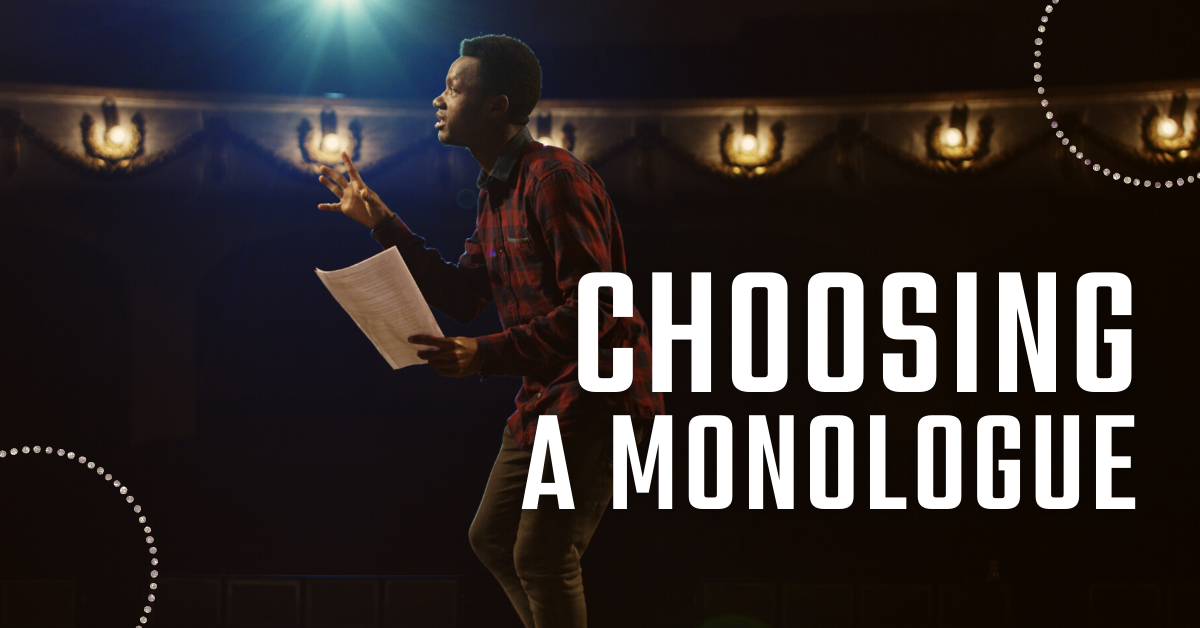On Taking Direction
Suppose you’re auditioning for a play.
You choose the most dramatic monologue in your aresnal. Let’s say the character is at her father’s funeral. She never told him she loved him while he was alive. Wracked with guilt and regret, she finally lets it all out and makes peace with her father, finally telling him she loves him.
You rehearse the piece over and over. You perform the monologue at the audition. Flawlessly. Terrifically. Tears flow.
(pause)
The director asks you to perform the same monologue again, but this time act like you’re thrilled the old man croaked. He was a stingy so-and-so and now you stand to inherit his vast fortunes. You’re thrilled he’s gone. GO!
But you know this character inside-out. You practically know the rest of the play by heart. You’ve created the backstory and know the character is in fact devastated by her loss. There is no other way of looking at it.
What do you do?
Easy – without a moment’s hesitation you perform that sucker again exactly as you were asked. Take this as encouragement. The director likes you and wants to see more. You’ve now moved on to the second date.
Any combination of these three things is happening here:
1. The director has something in mind for you, but the role asks for other qualities in the performer (maybe greed? vengeance? cold-heartedness?)
2. The director is testing your range. Sure you can cry on command but can you take us on the whole journey leading to that moment?
3. This is the most important one. Can you take direction? Can you just “go with it?” Good or bad. Right or wrong.
I’ve seen people lose parts over this – I’ve seen people argue back about “my character wouldn’t do this” and other nonsense. You’re being handed an opportunity here. Don’t blow it.
Rehearsal is like that too. When the director suggests an adjustment you take that suggestion and go with it 100%. You can’t see the play. You’re in it. There are a lot of moving pieces and only the director can see the whole.
I had a “go with it” moment the other day in rehearsal. My partner and I were asked to take a scene in a different direction. It certainly wasn’t how I saw the scene and I didn’t think the text supported what he wanted us to do. But you have to trust what you’re being given. You have to try it out
And you know what? It worked beautifully. It brought the scene to a different place and said so much more about our characters’ relationship than what we were playing previously. On further reflection I found that the text did support what we were doing.
My scene partner turned to me and said something like, “You forget sometimes how bad of an actor you are.” Both of us had the same doubts but both of us committed and were the better for it.
So the takeaway here is go for it. Take the direction and run with it. Embrace it. Make friends with it.
If it works… epic win. You’ve discovered something you didn’t know was there before.
If it doesn’t work… epic win still. You’ve discovered something that doesn’t work and can move on and try other things.
But if you don’t commit 100% you’ll epic fail. Every time.
Related Articles
Audition Toolkit
by Lindsay Price, Craig Mason, and Kerry Hishon
Teach students to present their best selves in an audition situation with The Audition Toolkit - complete with articles, exercises, tips and more for both teachers and students.
The 30-Second Monologue Project
by Lindsay Price
Give students the confidence, skills and tools they need to master the monologue with The 30-Second Monologue Project. This four-lesson unit guides students from the first moment to a successful performance.
Monologues for All
by Lindsay Price
Many monologue books have monologues with only male- or female-identified characters. This resource allows students to infer the identity of the character.






